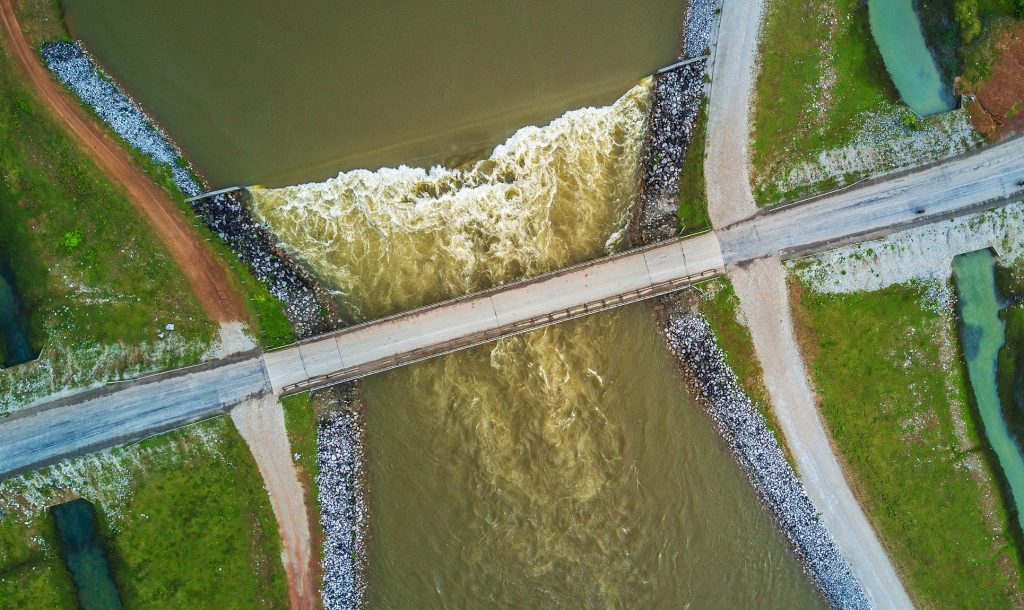Editor’s note: this is part of New Mandala’s series on Rupture: nature–society transformation in Mainland Southeast Asia, which is edited by the Rupture research project team—Sango Mahanty, Keith Barney, Sarah Milne, Phuc Xuan To and Philip Hirsch. You can visit the Rupture home page here.
Investments in large-scale resource and infrastructure development have helped propel mainland Southeast Asia’s impressive record of economic growth since the 1990s. New industrial commodity and extractive booms in the region’s resource frontiers have also catalysed dramatic social, institutional and environmental change—a process we call socio-ecological “rupture”.
On 10 July 2018, a new ARC Discovery project, Rupture: Nature-Society Transformations in Mainland Southeast Asia, hosted a workshop at the Crawford School of Public Policy at the Australian National University, Canberra.
The project aims to better understand the cumulative environmental transformations and stark social dislocations arising out of these transformations, and to draw out their social and political implications.
At the roundtable, a group of international scholars presented some of their past work that has empirically investigated the entanglements of environmental and social-political change. Below are videos of their presentations.
Christian Lund
Christian Lund is a professor at the University of Copenhagen. He is the author of Law, Power and Politics in Niger, Land Struggles and the Rural Code (Lit Verlag/Transaction Publishers) and Local Politics and the Dynamics of Property in Africa (Cambridge University Press). He is currently working on a book manuscript entitled Nine-tenths of the law: Enduring Dispossession in Indonesia.
Jonathan Rigg
Jonathan Rigg is Director of the Asia Research Institute and Professor of Geography at the National University of Singapore. He works on issues of agrarian transformation, poverty, vulnerability, migration, disaster and livelihoods in the Asian region, and has worked in Thailand, Laos, Vietnam, Nepal and Sri Lanka. He published Challenging Southeast Asian development: the shadows of success (Routledge 2015), which explores the underside of rapid economic growth and structural change. His latest book, More than rural: textures of Thailand’s agrarian transformation is in currently in press (Hawaii University Press).
Philip Hirsch
Philip Hirsch is Emeritus Professor of Human Geography at the University of Sydney. He is based in Thailand and affiliated with the Regional Centre for Social Science and Sustainable Development at Chiang Mai University. He works on questions of environment, development and agrarian change in Thailand and the Mekong region. Some recent works include Powers of Exclusion: Land dilemmas in Southeast Asia (with Hall and Li, Singapore University/Hawaii University 2011), The Mekong: A socio-legal approach to river basin development (with Boer, Johns, Saul & Scurrah, Earthscan/Routledge 2016) and the Routledge Handbook of Environment in Southeast Asia (Routledge 2017).
Benedict Kerkvliet
Benedict Kerkvliet is an Emeritus Professor at the Australian National University. He is currently researching forms of public political criticism in Vietnam and how state authorities react. His previous research emphasised agrarian politics in the Philippines and Vietnam, leading to the publication The Power of Everyday Politics: how Vietnamese peasants transformed national policy (Cornell 2005).
 Facebook
Facebook  Twitter
Twitter  Soundcloud
Soundcloud  Youtube
Youtube  Rss
Rss 